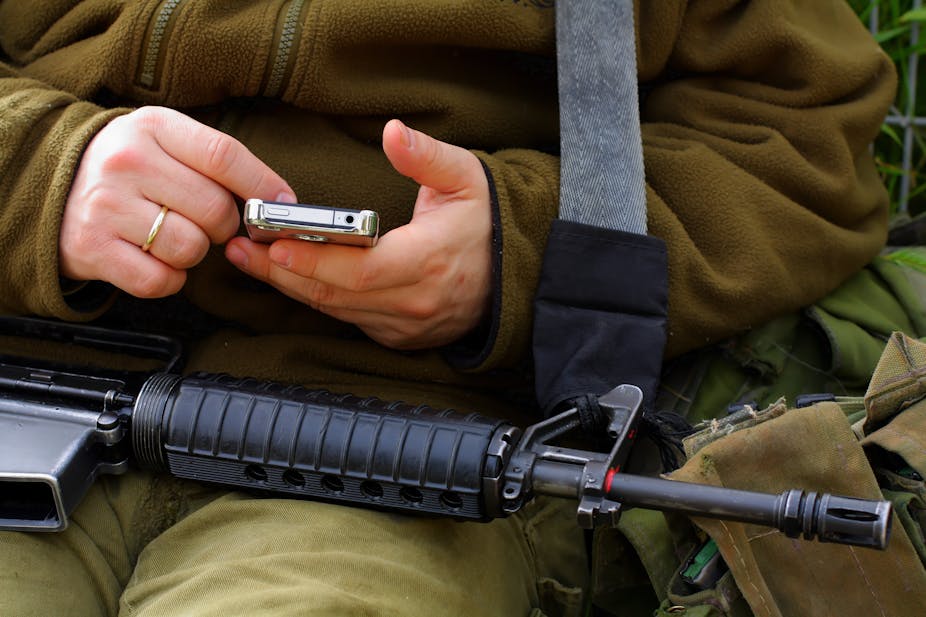The British Army is bringing in a new brigade, specialising in psychological warfare, and particularly the use of social media. Whereas the infantry, cavalry, artillery and engineers have been staple units of armies for hundreds of years, 77 Brigade will seek to influence operations in a rather different way.
The unit will be an operational body of as many as 1,500-2,000 men and women. Each brings their own specialism from sub-units allocated to the brigade from the Army, Navy and Air Force. Among them will be experts in psychological operations, media information operations and the stabilisation support group. These are groups mostly concerned with using words and ideas over violent means. Around 42% of the brigade will be made up of reserve “weekend warriors”.
The unit will carry out information operations through virtual domain mediums including social media but desk-based work may well be complimented by more hands-on soldiers, conducting civil affairs duties in the field. This is all part of “mastering a new kind of warfare”.
The brigade symbolises the recognition that hard power and military force are no longer the only tools needed in modern warfare. Factors such as security, law and order and development are frequently interrelated in a problematic nexus.
This became particularly clear during the wars in Afghanistan and Iraq. Winning “hearts and minds” may have become a banality, but the way events are framed and presented to overseas populations, as well as the British public at home, is incredibly important. The appropriate story needs to reach the right audience. The new brigade is founded on lessons from these recent counterinsurgencies and irregular wars.
Several of the units assigned to 77 Brigade will already possess operational experience from Afghanistan and Iraq. But their being based together in Berkshire is important for maximising the lessons learned and developing a good organisational culture. It is this focus on adapting to the changing nature of war that has drawn comparisons between this new brigade and the famed Chindits, the British-Indian guerrilla force that fought in World War II. This group operated deep behind enemy lines to battle the Japanese in the jungles of Burma.
What really makes this new brigade different is its non-violent and non-lethal ethos. It will shape the environment using information online, as opposed to arms and ammunition. It might be used, for example, to support peacebuilding, humanitarian intervention and development in insecure and failing states. Often, narratives promoting grievances and warmongering proliferate in the wake of conflict and need to be counteracted for reform to succeed; as was the case in Afghanistan.
It could also coordinate its activities with the Foreign Office and the Department for International Development, making it an important tool for British foreign policy and external relations.
Last to the party
The British Army is arguably late to realise the importance of social media and dynamic narratives as part of psychological warfare. The internet is a contested space as much as the physical battlefield and foreign powers have proven adept at claiming their stake.
The Israeli Defence Force, for example, has long used its digital presence to put out carefully crafted narratives – its twitter spokesperson being a particularly noteworthy example.
Russia, more aggressively, used campaigning of this kind to great effect in 2014 when it needed to add legitimacy to the hastily organised referendum on whether Crimea should become part of Russia or Ukraine. A narrative of a shared history had to be propagated and online media proved extremely useful for doing it.
Terrorist groups such as Islamic State have also adopted information and media campaigns to disseminate their propaganda. They use polarising internet videos both to subvert and recruit.
Boots off the ground
This battalion offers a new opportunity for the British government at a time when the ability to wage war in the traditional sense has perhaps been hindered.
Conventional military intervention is increasingly tied to parliamentary prerogative, leaving the prime minister vulnerable to the will of MPs. We saw how difficult this can be when David Cameron faced opposition from parliament over intervention against Islamic State in Syria. Deploying special forces has been a way to evade talking about “boots on the ground”.
77 Brigade will be far easier to employ, not least because it can operate without having to fire a single round in anger. As a result, the UK’s influence on the world is becoming more synthesised, with soft and hard power becoming more nuanced. As General Sir Nicholas Carter noted, the army is operating smarter.
But in a time of restricted defence spending, the jury is out on whether the new 77 Brigade will prove worth the expense. Traditional units such as the cavalry, artillery and engineers are, after all, more directly able to support the army’s central mission. However, 77 Brigade’s remit may perhaps be seen to be part of a larger army narrative, moving away from focusing on war and victims, and towards a more controlled, softer and humanitarian, image of intervention.

